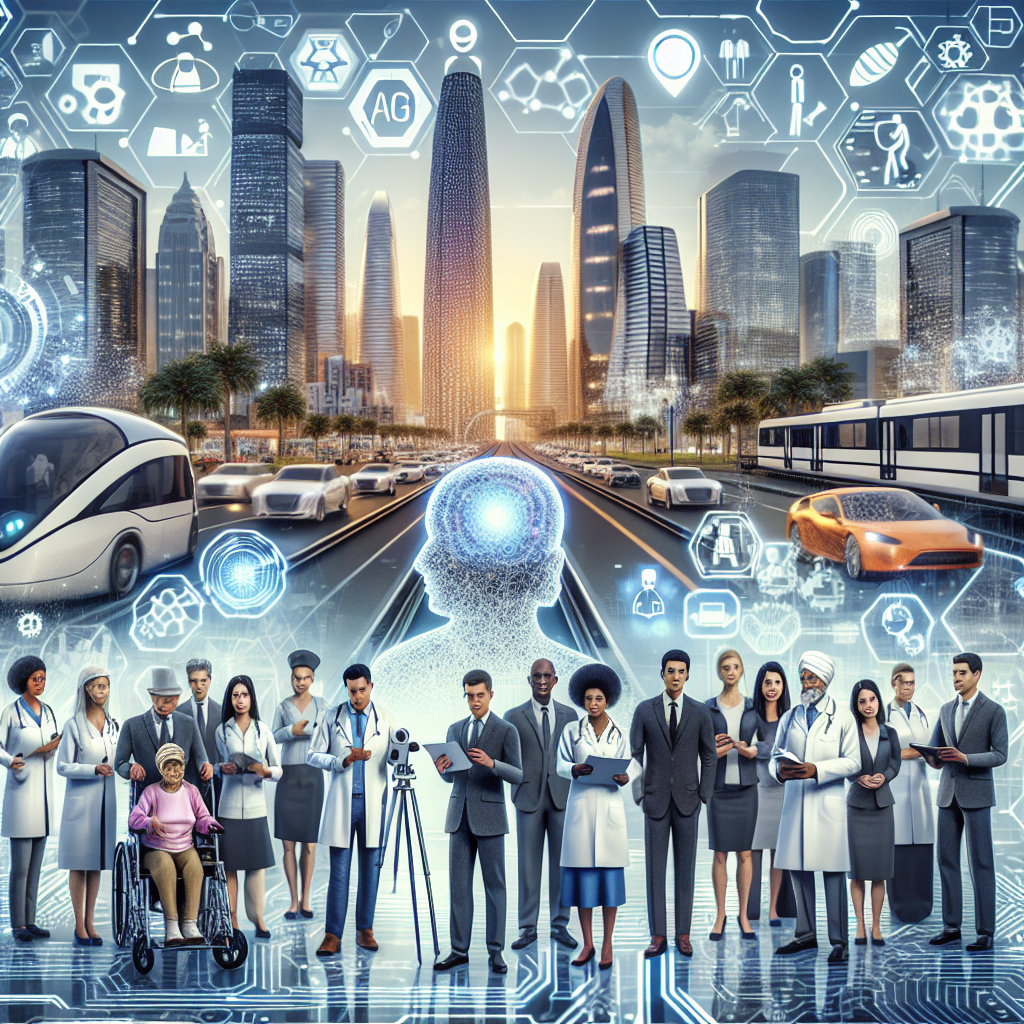The Promise of AGI: How It’s Shaping the Future of Work and Society
Artificial General Intelligence (AGI) is a term that has been gaining traction in recent years as technology continues to advance at an unprecedented pace. AGI refers to a form of artificial intelligence that possesses the ability to understand, learn, and apply knowledge across a wide range of tasks, much like a human being. While current AI systems are typically designed for specific tasks and lack the ability to generalize their knowledge, AGI has the potential to revolutionize the way we live and work.
The promise of AGI lies in its ability to automate complex tasks that were previously thought to be the exclusive domain of human intelligence. From driving cars to diagnosing diseases, AGI has the potential to transform industries and improve efficiency on a massive scale. However, with this promise comes a host of challenges and ethical considerations that must be carefully navigated in order to ensure that AGI is developed and deployed in a responsible manner.
One of the key ways in which AGI is shaping the future of work is through automation. As AGI becomes more advanced, it has the potential to automate a wide range of tasks across various industries, leading to increased productivity and efficiency. However, this automation also raises concerns about the impact on jobs and the economy. While some argue that automation will lead to job loss and increased inequality, others believe that it will create new opportunities and drive economic growth.
In addition to automation, AGI also has the potential to revolutionize the way we interact with technology. From virtual assistants to personalized healthcare, AGI has the ability to enhance our daily lives in ways that were previously unimaginable. With the ability to understand natural language and learn from experience, AGI has the potential to revolutionize the way we communicate, work, and play.
Despite the promise of AGI, there are also significant challenges that must be overcome in order to realize its full potential. One of the key challenges is ensuring that AGI is developed in a way that is ethical and aligned with human values. As AGI becomes more advanced, there is a growing concern about the potential for unintended consequences, such as bias and discrimination. In order to address these concerns, it is essential that AGI developers prioritize ethics and responsible AI practices in their work.
Another challenge is the potential impact of AGI on jobs and the economy. While automation has the potential to increase productivity and efficiency, it also raises concerns about job loss and economic disruption. In order to address these challenges, it is essential that policymakers and industry leaders work together to develop strategies for reskilling workers and creating new opportunities in the age of AGI.
In addition to these challenges, there are also a number of technical hurdles that must be overcome in order to achieve AGI. From developing more advanced algorithms to improving computational power, there are a number of technical challenges that must be addressed in order to realize the full potential of AGI. However, with the rapid pace of technological advancement, it is likely that these challenges will be overcome in the coming years.
Overall, the promise of AGI is vast and far-reaching. From transforming industries to enhancing our daily lives, AGI has the potential to revolutionize the way we live and work. However, in order to realize this promise, it is essential that we approach the development and deployment of AGI in a responsible and ethical manner.
FAQs
Q: What is the difference between AGI and narrow AI?
A: AGI refers to artificial intelligence that possesses the ability to understand, learn, and apply knowledge across a wide range of tasks, much like a human being. Narrow AI, on the other hand, refers to artificial intelligence that is designed for specific tasks and lacks the ability to generalize its knowledge.
Q: How will AGI impact jobs and the economy?
A: AGI has the potential to automate a wide range of tasks across various industries, leading to increased productivity and efficiency. However, this automation also raises concerns about job loss and economic disruption. In order to address these challenges, it is essential that policymakers and industry leaders work together to develop strategies for reskilling workers and creating new opportunities in the age of AGI.
Q: What are the ethical considerations surrounding AGI?
A: As AGI becomes more advanced, there is a growing concern about the potential for unintended consequences, such as bias and discrimination. In order to address these concerns, it is essential that AGI developers prioritize ethics and responsible AI practices in their work.
Q: What are some of the technical challenges associated with AGI?
A: From developing more advanced algorithms to improving computational power, there are a number of technical challenges that must be addressed in order to achieve AGI. However, with the rapid pace of technological advancement, it is likely that these challenges will be overcome in the coming years.

